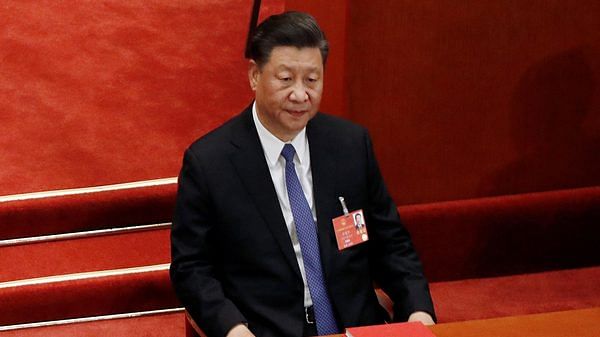Thank you dear subscribers, we are overwhelmed with your response.
Your Turn is a unique section from ThePrint featuring points of view from its subscribers. If you are a subscriber, have a point of view, please send it to us. If not, do subscribe here: https://theprint.in/subscribe/
The Chinese President Xi Jinping has been in power since 2012. During his decade plus rule, the Chinese economy has seen robust growth as well as subsequent economic downturn. At the same time, there is rejuvenation of Chinese nationalism and hardening of stance on territorial claims on land as well as sea.
Since late 2010, China’s economy has been gradually slowing down and not performing well in some sectors. Yet, China is assertive at its border with India. For example, China started the 73 days Doklam Standoff (2017) and it did deep multipronged incursion in Eastern Ladakh (2020). It led to a violent clash on June 15, 2020 in the Galwan Valley. Since then, new details recently put out by the Indian Army indicate, there have been a series of skirmishes between September 2021 and November 2022. All this could have spiraled out of control and led to conventional war between the two nuclear weapon states. Why did China not hesitate from such actions despite its economy not doing so well?
In 2013 Xi said socialism with Chinese characteristics is socialism and there is no other ‘ism’. On July 1, 2021 Xi Jinping spoke at the 100th anniversary of the Chinese Communist Party (CCP). He appeared in a Mao style suit and delivered a speech that was very Maoist in substance. This was just after the 2020 intervention of Xi. In 2020, after COVID-19 was under control, Xi started to rein in capitalism, which is a hew to Mao’s communism (Xi refers to it as socialism).
In a way, the world does not have a proper understanding about China’s economy. It is believed that their economy is off track and the CCP is unable to fix it. The fact is that Xi does not like a market driven economy. Hence, the reason why Xi is not allowing his own experts in the Government who are otherwise quite capable of solving the economic crisis. Thus, Xi does not believe in easing up the economy, allowing consumers to spend more, giving easy credit etc. It could be construed as soft and weak.
Xi wanted to control capitalism. He has more or less accomplished this task in order to ensure that nobody becomes so powerful wherein they are in a position to challenge the authority of the CCP. Xi has also emphasized populism where he wants the rich not to have a very lavish lifestyle especially since China still has huge economic inequalities.
Unemployment is high in China. In order to solve this economic problem, Xi has sought to rely on Mao style non-conventional ideological wisdom. He wants the unemployed youth to return to rural China and work as employees despite knowing that wages are not high enough as is the case in the urban areas. This is not acceptable to the aspirational Chinese youth.
While addressing the youth, Xi once said that the Chinese youth were having it too easy. By giving his own example, Xi highlighted how much hardships he faced on account of being thrown into the farms of the Cultural Revolution. He recounted that one had to struggle and that is what builds character of an individual. Thus, Xi’s rule comprises three main pillars: nationalism, populism and ideology. As a corollary, economy per se is not his priority no matter how much he and his government appear to be serious to the outside world.
Xi’s 2024 New Year Speech did highlight that China’s economy is not doing well. He assured the Chinese people that economic woes will be his foremost priority. Strong leaders, in the mold of Xi, always try to use the nationalism card to drum up support and eliminate any opposition within. It could be deciphered from Xi’s observation that China does not face any external threat but if it arises in future, it will emanate from within China. Xi might be pointing towards political rivals inside the CCP.
Xi has expressed desire to reclaim Tibet by implicitly referring to his territorial ambitions (great rejuvenation of Chinese nation) for Ladakh and Arunachal Pradesh. This nationalism card helps him consolidate his grip on power akin to Mao, who despite famine in China had launched the 1962 border war with India.
It appears Xi could go to any extent to consolidate his grip on power as he has eliminated term limits to his Presidency. He did manage to smoothly secure endorsement for the third term by the Congress. Xi is unlike his predecessors such as Deng Xiaoping, Jiang Zemin, Hu Jintao. India could manage good relations with all of them. It is testing times for the Indian leadership to resolutely deal with an assertive China since Xi Jinping is now President for life and Chairman of everything!
[Views have been arrived at, from open-source information]
These pieces are being published as they have been received – they have not been edited/fact-checked by ThePrint.

